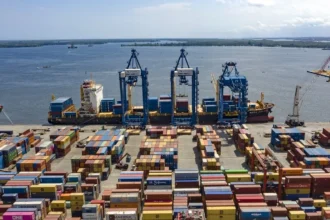The Minister stressed that customer deposits paid to ENEO cannot be transferred to the CDEC. Under the public-private partnership (PPP) signed between the State and ENEO, no provision explicitly designates such deposits as transferable to the CDEC. Only “advances on consumption” explicitly provided for by the Ministerial Order regulating the electricity sector are recognized as assets (class 2). In contrast, customer deposits are classified as current liabilities (class 4). Any attempt to claim these deposits, the Minister warned, would have exposed the State to litigation, the successful acquisition of ACTIS shares in ENEO.
Tax litigation fees: governed by the general tax code
Regarding fees paid by taxpayers in tax litigation cases, the Minister clarified that these sums are not deposits falling under CDEC’s mandate. If taxpayers succeed in their appeal, restitution occurs exclusively through tax credits applied to future payments, not via direct cash refunds. He emphasized that the 2008 law on deposits and consignments does not list these funds as part of the consignations entrusted to the CDEC.
COBAC supervision : safeguarding financial stability
The Minister reaffirmed the necessity of setting the CDEC under the supervision of the regional banking regulator, COBAC, following reforms recently adopted at the UMAC ministerial committee. The supervision aims to regulate a sector still loosely structured but closely tied to banking activities, strengthen accountability, governance, and transparency in deposit institutions, and harmonize practices across the Central African region.
Drawing parallels with France where the CDC is overseen by the Prudential Control and Resolution Authority and Morocco where the Deposit and Management Fund is supervised by Bank Al-Maghrib the Minister underlined that regional oversight is consistent with international standards set by the IMF and FATF. He recalled the crypto scandal LIYEPLIMAL as an example of unregulated activity that destabilized the financial system, stressing that proper supervision should not be seen as an obstacle if operations are managed responsibly.
Criminal assets : SRC chosen over CDEC
On the controversial issue of confiscated criminal assets, the Minister explained why management was entrusted to the Cameroon Debt Recovery Corporation (SRC). This decision aligns with FATF recommendations and supports Cameroon’s bid to exit the “grey list” of countries under increased monitoring. The SRC, with decades of expertise in public debt recovery and management of assets from banking liquidations, has demonstrated solid results. Between January 2022 and June 2025, it recovered XAF 16.8 billion out of a nominal portfolio of XAF 208.9 billion in court-ordered claims.
Its proven ability to manage divers assets real estate, financial holdings, business assets, and bank deposits combined with specialized staff, including magistrates and judicial officers, makes it the preferred institution for this task.
Through this detailed response, Cameroon’s Finance Minister reaffirms the primacy of existing regulations, counters potential misinterpretations, and strengthens the credibility of the national financial system. The move underscores Cameroon’s ongoing efforts to improve governance, secure public funds, and comply with global standards in the fight against money laundering and terrorism financing.















